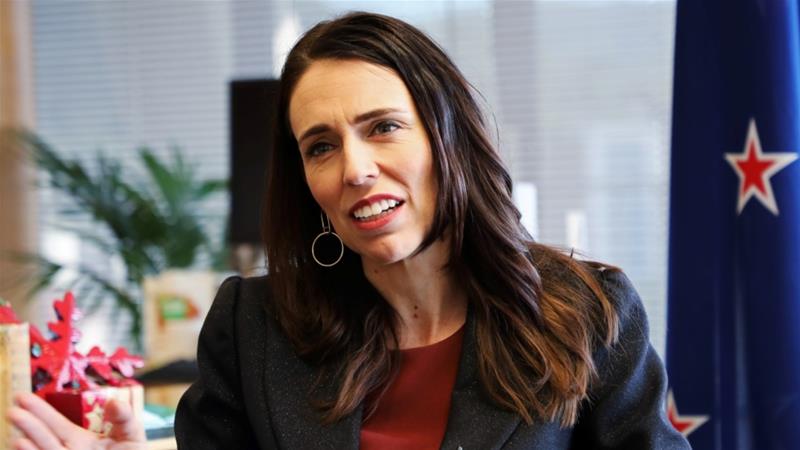Coronavirus puts the spotlight on leadership
https://arab.news/cfctp

The coronavirus pandemic will leave many things in its wake: Economic chaos for some time to come, only the extent of which is debatable; long-term changes in any number of societies in the patterns of work, as people question whether the “commute” is worth it, and perhaps a reversal of urbanization; while, away from recently prosperous nations, the long-term and as yet unquantifiable impact on the world’s poorest.
Almost certainly, we are going to look hard at leadership. Leadership is an art, not a science, and it comes in many forms; it’s not always about world leaders. Some leaders are emerging away from the glare of the spotlight — heroes who have turned around their medical institutions to cope with the incredible strain of so many cases, and whose stories we are yet to hear. Other heroes include the religious leaders who have taken the necessary decisions to restrict the public’s observance of faith, confounding the extremists, whose selfishness is disguised in faux piety. Then there are the community leaders, and indeed some celebrities, who have stepped up to organize and raise the human need for sympathy, contact and communication to a new level in a time of isolation.
Political leaders are formed by events, often those for which their training and experience cannot equip them, so they have to reach for something different. The qualities of leadership in a crisis are very different from when the waters are smooth. And, although experts say this virus follows a predictable cycle, largely independent of government action, whether leaders’ actions mitigate or enhance the impact of the cycle is not random.
Leadership is at the center of the outbreak. Both China and the World Health Organization (WHO) will have questions to answer as to what happened, how it was initially dealt with, and the relationship between them. This area of leadership is bound up with integrity. We must be entitled to have confidence in a global organization responsible for health security, which will tell us the truth without suspicion, receiving full and open cooperation from the state at the heart of it. At present, this is not there, and the qualities of bravery and honesty will be in demand. No one expects an error-free story, but we do expect a true timeline and full disclosure. The leaderships in Geneva and Beijing must deliver this.
Leadership sometimes demands laser-like focus on an issue and the ability to avoid distraction, even if politically advantageous. This is a difficult bar for many. The issue of the WHO and China is already clouded by the threat from the US to withhold funding from the WHO and its aggressive criticism of both in advance of any inquiry, undermining the prospects of getting to the truth and of necessary reform in the WHO. Leadership is also mostly not about what you do, but how you do it.
International organizations lead the world in many spheres. Former UK Prime Minister Gordon Brown has seized on what appeared to be a vacuum in global financial leadership compared to the crash of 2008. He demanded an international response to the catastrophic predictions of the losses to economies worldwide, which simply cannot recover without concerted action. The EU watched Italy’s health defenses be overrun in horror, but its constituent nations looked after themselves first and foremost.
However, slow responses after a shock need not be fatal, if the pace is quickly picked up. The Saudi-led G20 responded firstly with a virtual economic summit, and now this week with one on international health. It must continue to drive the organization in a manner lacking after so many longer-established economies went into meltdown and turned inward. The EU must do the same after its leaders, both Emmanuel Macron and new European Commission President Ursula von der Leyen, scored points with the public by admitting error, apologizing and being prepared, in Macron’s case, to face up to the potential destruction of the EU if it could not find a communal response to the needs of its members.
The qualities of leadership in a crisis are very different from when the waters are smooth.
Alistair Burt
Another intriguing factor will be the analysis of individual leaders to discern who had a “good” crisis and who did not. Early findings — and we are a long way from the end of all this — have seen women leaders disproportionately well placed among those currently deemed to have handled the crisis well. In Taiwan, President Tsai Ing-wen has demonstrated the ability to learn the lessons of SARS, and to have acted decisively and early. In New Zealand, Jacinda Ardern, sadly no stranger to devastating blows, has also shown that experience can be used to move sharply and that empathetic leadership, rather than rage, brings a nation together.
Women leaders in Denmark and Finland also exhibited rapid decision-making, but if these are smaller, more homogeneous countries than many, Germany’s remarkable Chancellor Angela Merkel is leading a more diverse country, not just seemingly better prepared than many, but also handling the current wave of the crisis with an admirable effectiveness.
Merkel is also a scientist, by the way — a rare commodity among world leaders. Perhaps an inquiry into leadership might focus on qualities and attributes other than gender.
- Alistair Burt is a former UK Member of Parliament who has twice held ministerial positions in the Foreign and Commonwealth Office — as Parliamentary Under Secretary of State from 2010 to 2013 and as Minister of State for the Middle East from 2017 to 2019. Twitter: @AlistairBurtUK









































